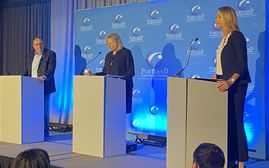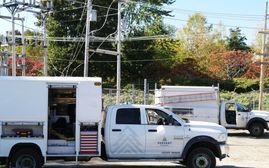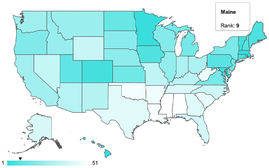Processing Your Payment
Please do not leave this page until complete. This can take a few moments.
- News
-
Editions
-
- Lists
-
Viewpoints
-
Our Events
-
Event Info
- Women's Leadership Forum 2025
- On the Road with Mainebiz in Bethel
- Health Care Forum 2025
- On The Road with Mainebiz in Greenville
- On The Road with Mainebiz in Waterville
- Small Business Forum 2025
- Outstanding Women in Business Reception 2025
- On The Road with Mainebiz in Bath
- 60 Ideas in 60 Minutes Portland 2025
- 40 Under 40 Awards Reception 2025
- On The Road with Mainebiz in Lewiston / Auburn
- 60 Ideas in 60 Minutes Bangor 2025
Award Honorees
- 2025 Business Leaders of the Year
- 2024 Women to Watch Honorees
- 2024 Business Leaders of the Year
- 2023 NextUp: 40 Under 40 Honorees
- 2023 Women to Watch Honorees
- 2023 Business Leaders of the Year
- 2022 NextUp: 40 Under 40 Honorees
- 2022 Women to Watch Honorees
- 2022 Business Leaders of the Year
-
-
Calendar
-
Biz Marketplace
- News
- Editions
- Lists
- Viewpoints
-
Our Events
Event Info
- View all Events
- Women's Leadership Forum 2025
- On the Road with Mainebiz in Bethel
- Health Care Forum 2025
- On The Road with Mainebiz in Greenville
- On The Road with Mainebiz in Waterville
- + More
Award Honorees
- 2025 Business Leaders of the Year
- 2024 Women to Watch Honorees
- 2024 Business Leaders of the Year
- 2023 NextUp: 40 Under 40 Honorees
- 2023 Women to Watch Honorees
- 2023 Business Leaders of the Year
- + More
- 2022 NextUp: 40 Under 40 Honorees
- 2022 Women to Watch Honorees
- 2022 Business Leaders of the Year
- Nomination Forms
- Calendar
- Biz Marketplace
LePage calls for emergency special session of Legislature over new 'food sovereignty' law
 Courtesy / Matthew Gagnon, Wikimedia Commons
Gov. Paul LePage is calling for a special session of the Legislature to address issues raised by the federal government over the "food sovereignty" law that's set to go into effect on Nov. 1.
Courtesy / Matthew Gagnon, Wikimedia Commons
Gov. Paul LePage is calling for a special session of the Legislature to address issues raised by the federal government over the "food sovereignty" law that's set to go into effect on Nov. 1.
Gov. Paul LePage is calling for an emergency special session of the Legislature to amend the “food sovereignty” law set to go into effect Nov. 1, saying if the new law isn't changed it would allow federal regulators to step in and oversee hundreds of Maine processing facilities.
In an Aug. 27 letter to legislators, LePage said that LD 725, which allows food produced and consumed within a community to be under the control of the community, will cost the state money, hurt small farmers and is in violation of a federal contract for food inspections.
He included a July 6 letter from the U.S. Department of Agriculture's Federal Food Safety and Inspection Service that said the federal government is concerned the law doesn’t comply with federal law regarding oversight of meat and poultry inspections.
The Maine law gives communities control over production, sale to consumers, processing and consumption of food that doesn’t leave the community — things that are now subject to federal and state licensing and regulation. The law, the first of its kind in the nation according to legislators and supporters, does not does not include food grown or processed for wholesale or retail distribution outside the community.
The purpose of the law is to make it easier for producers to sell food within the community without the cost and complications of state licensing and inspections.
The bill was introduced by Senate Minority Leader Troy Jackson, D-Allagash, passed in June and was signed by LePage.
At the time the bill passed, Jackson speculated that it appealed to LePage because it eases regulations. “The governor is not a fan of red tape,” he told the Bangor Daily News.
Here's why LePage says law must be amended
But LePage, in his letter to lawmakers, said the law must be amended to avert serious consequences spelled out in the USDA letter.
“If this law is not changed, five state licensed facilities, 30 custom facilities, 51 small facilities for poultry processing and 2,714 small retail processing facilities will switch from state oversight to federal inspection,” LePage said in the letter.
“Maine cannot afford to erase 14 years of facilities growth and improvements under the federally approved Maine Meat and Poultry Inspection program, including a 42% increase in state licensed facility output in the last four years,” he wrote. “The larger Maine agricultural economy benefits from a half-billion dollars in farm livestock and poultry product revenue.”
LePage’s letter said small farms will be hurt the most by the bill. “We will not be able to continue growing this local food sector of the Maine rural economy by subjecting Maine farms and businesses to inspectors and regulations based in Washington,” he wrote.
He said that the U.S. Secretary of Agriculture notified the state that the department is “preparing to exercise federal control of all meat and poultry slaughter and processing unless LD 725 is changed immediately.” The state must have inspection programs that are at least equal to those of the federal government. If it doesn’t, the federal government takes over those inspections.
Feds' July 6 letter warns state of possible steps
LePage included a July 6 letter to Walter Whitcomb, commissioner of the Maine Department of Agriculture, Conservation and Forestry, from the Federal Food Safety Inspection Service that said that “it is not clear how the Maine meat and poultry inspection programs … would maintain requirements that are ‘at least equal to’ those set out in the Federal Meat Inspection Act” under the new law.
The letter from Alfred Almanza, undersecretary to the Food and Safety Inspection Service, references an earlier conversation with Maine officials about the law before it was passed, warning of the same issue.
“Given the broad authority that the Food Sovereignty Act appears to provide to municipalities to promulgate ordinances that the state would be required to follow, FSIS does not believe that Maine will be able to maintain its ‘at least equal to’ status,” Almanza wrote in the July 6 letter. He asks for information explaining how the law would comply.
He said that if Maine’s inspection programs aren’t equal to the federal ones, Maine would be designated for federal inspection.
Jackson told the Bangor Daily News Wednesday that he is “a little shocked” by LePage’s letter, and hasn’t seen the communication from the Federal Food Safety and Inspection Service. “I would like to see what the USDA is talking about” before commenting, he said.
DOWNLOAD PDFs
Gov. Paul LePage letter calling for special sesion
USDA letter to Walter Whitcomb, commissioner of Maine Department of Agriculture
LePage raises separate GIS funding issue
Gov. Paul LePage told lawmakers the special session he's calling also should take up the failure of the state budget enacted July 3 to fund the Maine Office of Geographic Information Systems, which provides mapping and data.
LePage did not say when the special session would convene.
LePage also wants the Legislature to fund the GIS, which had been supported by agency fees. Those fees were removed from department budgets, with the exception of the Department of Transportation, but the enacted state budget didn’t take the next step of creating the Department of Technology Services and didn’t allocate general fund money for geographic system.
The system compiles and provides data and mapping for state agencies and the public.
LePage said that since the budget passed the system has been operating on money carried over from the previous fiscal year.
“MEGIS provides critical services that are used at the local and regional level across Maine in support of economic development activities and public safety,” he wrote. “The University of Maine System also relies on MEGIS, and any disruption in services would have devastating effects on students who use the publicly available resources and data.
He said funding will run out in November and he’s heard from constituents concerned about the issue. “If this happens, the future of MEGIS and the state's ability to adequately provide GIS services will be in extreme jeopardy.”









 (1)
(1)



Comments